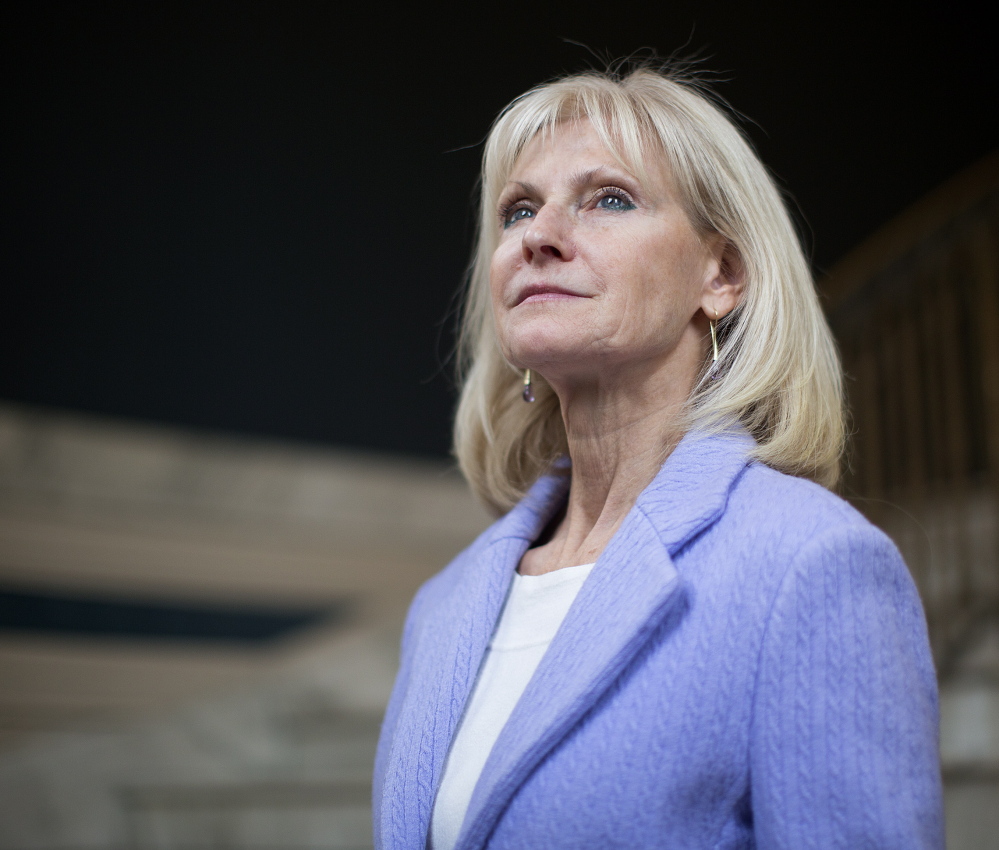Portland’s new director of health and human services, Dawn Stiles, has an interesting connection to Gov. Paul LePage’s administration.
Four years ago, Stiles was one of 35 people from the public and private sectors tasked with helping the newly elected Republican governor make the transition into the Blaine House by vetting candidates for top posts and developing policy proposals.
Now, Stiles could find herself at odds with the administration she had a hand in creating. Her arrival on the scene comes at a time when LePage’s efforts to reform the state’s welfare system has put Portland in the crosshairs, mainly because it continues to provide General Assistance to undocumented immigrants.
Portland is a party in a lawsuit challenging the LePage administration’s directive to stop providing General Assistance – an assistance program of last resort, the costs of which are shared by municipalities and the state – to undocumented immigrants.
Meanwhile, a special state-led audit of the city’s GA program that began in the spring of 2013 is continuing.
“I think I will be one of many voices working to resolve these issues,” Stiles said.
Stiles, who grew up in Wilton, took over for Douglas Gardiner on Dec. 1 as the head of the city’s Health and Human Services Department, which has roughly 400 employees and a budget of $38 million. Gardiner resigned to take a job in the private sector.
While on the gubernatorial transition team, Stiles said she worked on improving the accuracy and timeliness of the state’s Medicaid billing system and looked for ways to reduce regulatory burdens faced by businesses and nonprofits alike.
“It was a really interesting experience,” she said.
Before taking the job in Portland, Stiles spent a year as executive director of the Anna Maria Island Community Center in Florida. Before that, she served seven years as director of Spurwink Services, the state’s largest mental health agency, which has a budget of $55 million and more than 1,000 employees.
She also was a deputy bureau director within the state DHHS, and served under Govs. John McKernan, Angus King and John Baldacci.
“I think all experiences contribute to one’s basis of knowledge,” Stiles said. “I think that understanding the complexities and the difficulties in bureaucracy and a regulatory environment … all of that is helpful in being more tolerant and more understanding about what’s able to be accomplished and in what time frame.”
Stiles, 59, said she decided to return to Maine because she wanted to get back into public policymaking and live closer to her kids and “significant other,” who had planned to move to Florida but instead received an enticing job offer to stay in Maine.
“It certainly wasn’t for the weather,” she quipped.
Stiles said she has spent her first two weeks getting acquainted with city staff and programs, concentrating on areas that are outside of her expertise, such as General Assistance and public health. So far, she has been impressed with the knowledge and professionalism of city staff.
The city’s General Assistance program could provide the biggest challenge. The city is politically liberal, while the rest of the state – particular the rural areas – seems to be becoming more conservative.
Meanwhile, Portland is a popular resettlement area for refugees, asylum seekers and undocumented immigrants, all of whom can receive government aid here. That adds a layer of complexity to Stiles’ job.
“The first thing I have to do is understand the complexities of all of the different pieces, facts and policies around General Assistance and the immigration process. Holy cow, it’s complicated,” she said. “My first priority is just understanding it.”
Send questions/comments to the editors.



